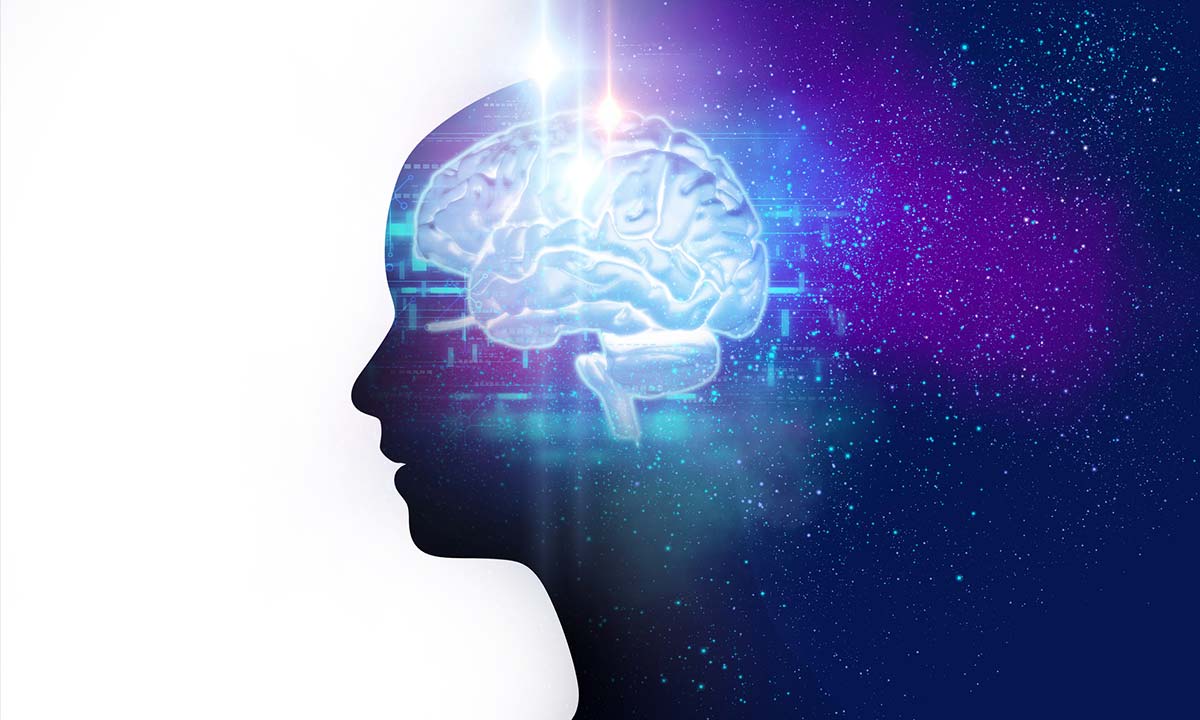At the June RBC Disruptors event, renowned physician and brain scientist Dr. Murali Doraiswamy discussed the impact of technology on our brains, as it relates to our mental health, neurological development, as well as the future ethical dilemmas that will take shape as technology and the brain become more closely entwined.
In this edition of the Technology and the Brain series, technological advancement is discussed within the context of ethical practice. Who is entitled to expensive treatment? How far can we go when it comes to meshing technology and brain function? Can we maintain diversity as brain discovery advances? Dr. Doraiswamy offers insights and raises important questions as the delicate relationship between medicine and ethics is explored.
The Brain: The Final Frontier
Dr. Doraiswamy says the brain is the final frontier. It holds solutions to solve human suffering, and the more we learn about the brain, the more we understand how it has the power to transform our lives and society. There is still so much we don’t know or understand, and the possibilities are endless.
Advances in Brain Health Technology – Where We Are Today
Technology has the power to augment our brains’ capabilities, treat illnesses and improve the way of life for so many. When you look at how technology has enabled us to accomplish advances in health, we have already come so far.
Here are just a few examples:
Cochlear Implants: Are electronic medical devices that replace the function of a damaged inner ear. Unlike hearing aids, which make sounds louder, cochlear implants do the work of damaged parts of the inner ear to provide sound signals to the brain.
Implantable Miniature Telescopes: That replace the lens in your eye and work like a telephoto lens in a camera. Once implanted inside the eye, the telescope magnifies images onto the healthy areas of the retina to help improve central vision.
Brain Machine Interfaces: Allow people with paralysis to type with just their brains
Pacemakers in the Brain: Control tremors, a common symptom of Parkinson’s disease, or prevent epileptic seizures
And Research Is Accelerating
Technological advances in brain health and research are gaining speed, with boundless opportunity for the future. Groundbreaking advances and current projects include:
- A hippocampus transplant in mice
- Reverse-engineering of a brain to understand how millions of nerve cells work. Models are being built to stimulate brain function in an effort to look at specific areas where the brain is damaged, and how it can be repaired
- Some researchers are transplanting brains from one animal to another
- Mind-controlled drones can be flown
- Through his company Neuralink, Elon Musk is working on trying to implant a mesh in the brain, in an attempt to create an internet of brains where you can connect to the internet without typing
At the same time, Dr. Doraiswamy explains that there is still so much we don’t understand about the brain. “We understand 200 regions of the brain, but there are millions of connections. So we don’t really understand anything. If the brain was so simple that we could understand it, we would be so simple that we wouldn’t be able to understand it.”
With Great Power, Comes Great Responsibility
While the science is staggering and the potential to repair and improve so great, Dr. Doraiswamy warns that such advances give rise to ethics, equality and privacy issues.
“Market forces will steer science to help advantaged people for individual gain. We have to guard against it sooner rather than later. If we don’t se the right framework and policy now, [these advances in brain tech] will be abused.”
For example, some neurological drugs cost $500,000 per year and gene therapies could cost in the millions. And in the future, we will be able to learn our genetic information at birth, allowing us to know our risk factors and health outcomes in the years ahead.
As a Result, Key Questions Are Raised:
If you’re told at an early age that you’re fated for certain outcomes, what happens? You can’t tell people they have a bad outcome without having a solution in place. This could be the ultimate disruption of society.
How much diversity will we be able to preserve in society, if people are able to pick their genetic make up? We need all types of personalities and capabilities to lead – from musicians, CEOs, basketball players, scientists, etc.
In free market countries, how can you create equality in treatment? If you have the money you live, but if you don’t, you die? How do we solve for this?
If someone has $1,000,000 can they buy a better brain? Will intelligence and health be reserved only for the wealthy?
There are many scientists today who are urging the responsible and ethical use of Artificial Intelligence and other technology, so that inequalities aren’t worsened. Along the way of these extraordinary advances, it’s critical to put human beings first – there is the power to change people’s lives, and change society for the good, so let’s ensure that’s the path our world takes.
“It’s important to harness technology, plan for it and set policy against it, so that it benefits all – rather than the few.”
Read more insights shared at the recent RBC Disruptor Series around Technology & The Brain.
This article is intended as general information only and is not to be relied upon as constituting legal, financial or other professional advice. A professional advisor should be consulted regarding your specific situation. Information presented is believed to be factual and up-to-date but we do not guarantee its accuracy and it should not be regarded as a complete analysis of the subjects discussed. All expressions of opinion reflect the judgment of the authors as of the date of publication and are subject to change. No endorsement of any third parties or their advice, opinions, information, products or services is expressly given or implied by Royal Bank of Canada or any of its affiliates.



















